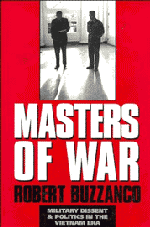Book contents
- Frontmatter
- Contents
- Acknowledgments
- List of Abbreviations
- 1 Introduction: Losing Battles and Winning Wars
- 2 Prologue to Tragedy: U.S. Military Opposition to Intervention in Vietnam, 1950–1954
- 3 Preparing for and Avoiding War: Military Affairs and Politics in Vietnam and the United States, 1955–1960
- 4 Pinning Down the President: JFK, the Military, and Political Maneuvering over Vietnam, January-October 1961
- 5 The Best and Worst of Times: The U.S. War against Vietnam, October 1961–November 1963
- 6 “Seeing Things Through in Vietnam”: LBJ, the Military, and the Growing U.S. Commitment to Vietnam, November 1963-December 1964
- 7 Hope for the Best, Expect the Worst: U.S. Ground Troops Enter the Vietnam War, January-July 1965
- 8 War on Three Fronts: U.S. Forces versus the Viet Cong, Westmoreland versus the Marines, and Military Leaders versus the White House, July 1965-December 1966
- 9 “The Platform of False Prophets Is Crowded”: Public Hope and Private Despair in Vietnam, 1967
- 10 The Myth of Tet: Military Failure and the Politics of War
- 11 Conclusion: Bringing It All Back Home
- Epilogue: “This Is a Real War”: Military Dissent and Politics after Vietnam
- Bibliography
- Index
2 - Prologue to Tragedy: U.S. Military Opposition to Intervention in Vietnam, 1950–1954
Published online by Cambridge University Press: 05 August 2012
- Frontmatter
- Contents
- Acknowledgments
- List of Abbreviations
- 1 Introduction: Losing Battles and Winning Wars
- 2 Prologue to Tragedy: U.S. Military Opposition to Intervention in Vietnam, 1950–1954
- 3 Preparing for and Avoiding War: Military Affairs and Politics in Vietnam and the United States, 1955–1960
- 4 Pinning Down the President: JFK, the Military, and Political Maneuvering over Vietnam, January-October 1961
- 5 The Best and Worst of Times: The U.S. War against Vietnam, October 1961–November 1963
- 6 “Seeing Things Through in Vietnam”: LBJ, the Military, and the Growing U.S. Commitment to Vietnam, November 1963-December 1964
- 7 Hope for the Best, Expect the Worst: U.S. Ground Troops Enter the Vietnam War, January-July 1965
- 8 War on Three Fronts: U.S. Forces versus the Viet Cong, Westmoreland versus the Marines, and Military Leaders versus the White House, July 1965-December 1966
- 9 “The Platform of False Prophets Is Crowded”: Public Hope and Private Despair in Vietnam, 1967
- 10 The Myth of Tet: Military Failure and the Politics of War
- 11 Conclusion: Bringing It All Back Home
- Epilogue: “This Is a Real War”: Military Dissent and Politics after Vietnam
- Bibliography
- Index
Summary
[W]hen the day comes for me to face my Maker and account for my actions, the thing I would be most humbly proud of was the fact that I fought against, and perhaps contributed to preventing, the carrying out of some hare-brained tactical schemes which would have cost the lives of thousands of men. To that list of tragic accidents that fortunately never happened I would add the Indo-China intervention.
Matthew B. RidgwayAlthough American leaders in the following decade would establish Vietnam as the central battlefield in the global cold war, U.S. military officials in the 1950s consistently opposed expanded commitments to and intervention in Indochina. Indeed, throughout the early part of that decade, the armed forces worked against military involvement in the First Indochina war more than any other institution, in or out of government. From 1950 to 1954, when the Truman and Eisenhower administrations made a series of irrevocable commitments to the French and then native anti-Communist elements in southern Vietnam, the Joint Chiefs of Staff (JCS), its various committees, respective service leaders, and other senior officers working in government voiced serious misgivings about intervention in Indochina, with Army officers in particular opposed to such measures. In light of U.S. limits and priorities, they explained, an expanded role in Vietnam would damage the national interest.
To press their case against involvement in Vietnam, military dissenters presented a complex yet well-developed case against involvement in Indochina based on comprehensive and interrelated political, economic, and military factors.
- Type
- Chapter
- Information
- Masters of WarMilitary Dissent and Politics in the Vietnam Era, pp. 25 - 54Publisher: Cambridge University PressPrint publication year: 1996



